
In United Nations Security Council resolution 853, adopted unanimously on 29 July 1993, after reaffirming Resolution 822 (1993), the Council expressed its concern at the deteriorating relations between Armenia and Azerbaijan and condemned the seizure of the district of Agdam and other areas of Azerbaijan, demanding a complete withdrawal from the areas by Armenians.

United Nations Security Council resolution 884, adopted unanimously on 12 November 1993, after reaffirming resolutions 822 (1993), 853 (1993) and 874 (1993), the Council expressed its concern at the continuing conflict between Armenia and Azerbaijan in Nagorno-Karabakh and condemned violations of the ceasefire between the parties, particularly the occupation of the Zəngilan district and city of Goradiz. Resolution 884 is the fourth and last of the resolutions adopted by the UN Security Council regarding the Nagorno-Karabakh conflict.

United Nations Security Council resolution 767, adopted unanimously on 24 July 1992, after reaffirming resolutions 733 (1992), 746 (1992) and 751 (1992), the Council noted the ongoing humanitarian efforts in Somalia by the United Nations and the deteriorating political situation in the country.
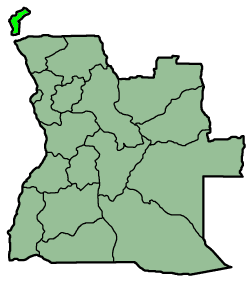
United Nations Security Council resolution 811, adopted unanimously on 12 March 1993, after reaffirming resolutions 696 (1991), 747 (1992), 785 (1992), 793 (1992) and 804 (1993), the Council expressed its concern at recent fighting and condemned the violations of the "Acordos de Paz" peace agreement in Angola by UNITA, including its rejection of election results and negotiations in addition to its resumption of hostilities.

United Nations Security Council resolution 834, adopted unanimously on 1 June 1993, after reaffirming resolutions 696 (1991), 747 (1992), 785 (1992), 793 (1992), 804 (1993), 811 (1993) and 823 (1993), the council indicated its concern at the deteriorating political, military and humanitarian situation in Angola and extended the mandate of the United Nations Angola Verification Mission II for a period of 45 days ending 15 July 1993.
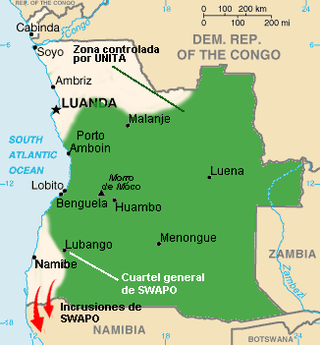
United Nations Security Council resolution 851, adopted unanimously on 15 July 1993, after reaffirming resolutions 696 (1991), 747 (1992), 785 (1992), 793 (1992), 804 (1993), 811 (1993), 823 (1993) and 834 (1993), the Council noted the continuing deterioration of the situation in Angola and extended the mandate of the United Nations Angola Verification Mission II until 15 September 1993, discussing further the peace process in the country.

United Nations Security Council resolution 863, adopted unanimously on 13 September 1993, after reaffirming resolutions 782 (1992), 797 (1992), 818 (1993) and 850 (1993) on the situation in Mozambique, the council discussed the implementation of the Rome General Peace Accords.
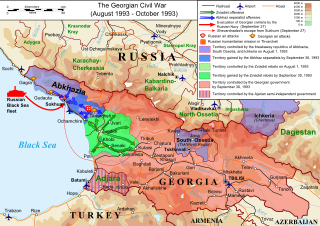
United Nations Security Council resolution 876, adopted unanimously on 19 October 1993, after reaffirming resolutions 849 (1993), 854 (1993) and 858 (1993) concerning the Georgian–Abkhazian war, the council determined that the situation continued to constitute a threat to international peace and security.

United Nations Security Council resolution 892, adopted unanimously on 22 December 1993, after reaffirming resolutions 849 (1993), 854 (1993), 858 (1993), 876 (1993) and 881 (1993) on the Georgian–Abkhazian war and Resolution 868 (1993) concerning the safety of United Nations peacekeepers, the council discussed the phased deployment of 50 military observers in Georgia.

United Nations Security Council resolution 897, adopted unanimously on 4 February 1994, after reaffirming resolutions 733 (1992) and 886 (1992) and all of its subsequent resolutions on Somalia, the Council discussed the role of the United Nations Operation in Somalia II in the peace process in the country.

United Nations Security Council resolution 900, adopted on 4 March 1994, after reaffirming all resolutions on the situation in Bosnia and Herzegovina, the Council discussed the restoration of essential public services and normal life in and around the capital Sarajevo.

United Nations Security Council resolution 903, adopted unanimously on 16 March 1994, after reaffirming Resolution 696 (1991) and all subsequent resolutions on Angola, the Council strengthened and extended the mandate of the United Nations Angola Verification Mission II until 31 May 1994.

United Nations Security Council resolution 913 was adopted unanimously on 22 April 1994, after reaffirming all resolutions on the situation in Bosnia and Herzegovina and also Resolution 908 (1994). The Council discussed the situation in the safe area of Goražde and a settlement of the conflict.

United Nations Security Council resolution 924, adopted unanimously on 1 June 1994, after considering the civil war in Yemen between the Yemeni government and Yemeni Socialist Party, the Council called for the immediate cessation of hostilities and for a fact-finding mission to be sent to the country.
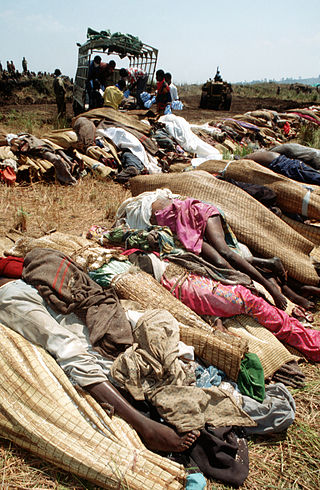
United Nations Security Council resolution 925, adopted unanimously on 8 June 1994, after reaffirming all resolutions on the situation in Rwanda, particularly resolutions 912 (1994) and 918 (1994), and Resolution 868 (1993) on the safety of United Nations peacekeepers, the council deployed additional battalions and extended the mandate of the United Nations Assistance Mission for Rwanda (UNAMIR) until 9 December 1994.
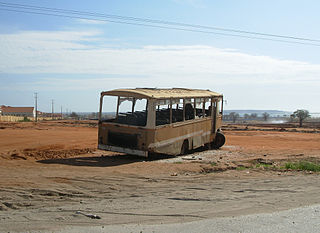
United Nations Security Council resolution 952, adopted unanimously on 27 October 1994, after reaffirming Resolution 696 (1991) and all subsequent resolutions on Angola, the Council discussed the implementation of a ceasefire in the country and extended the mandate of the United Nations Angola Verification Mission II until 8 December 1994.

United Nations Security Council resolution 972, adopted unanimously on 13 January 1995, after reaffirming resolutions 813 (1993), 856 (1993), 866 (1993), 911 (1994) and 950 (1994), the council discussed the peace process in Liberia and extended the mandate of the United Nations Observer Mission in Liberia (UNOMIL) until 13 April 1995.

United Nations Security Council resolution 976, adopted unanimously on 8 February 1995, after reaffirming resolutions 696 (1991) and all subsequent resolutions on Angola, the Council authorised the establishment of a new peacekeeping mission in the country, the United Nations Angola Verification Mission III with an initial mandate ending on 8 August 1995.
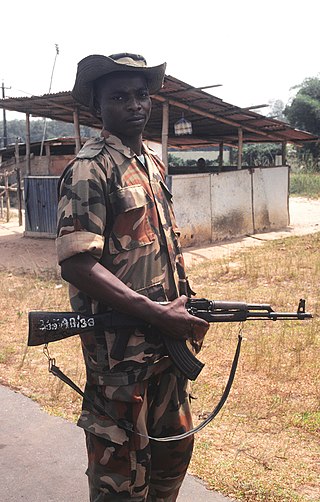
United Nations Security Council resolution 985, adopted unanimously on 13 April 1995, after reaffirming resolutions 813 (1993), 856 (1993), 866 (1993), 911 (1994), 950 (1994) and 972 (1995), and 788 (1992) which imposed an arms embargo on Liberia, the council established a committee to monitor the implementation of the embargo and extended the mandate of the United Nations Observer Mission in Liberia (UNOMIL) until 30 June 1995.

United Nations Security Council resolution 1052, adopted unanimously on 18 April 1996, after recalling previous resolutions on Israel and Lebanon, including 425 (1978), the Council called for an immediate ceasefire during the Operation Grapes of Wrath.




















